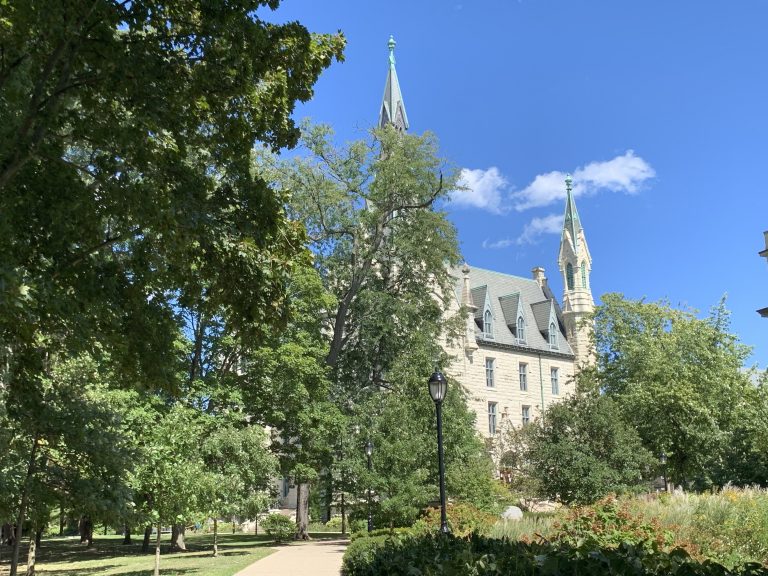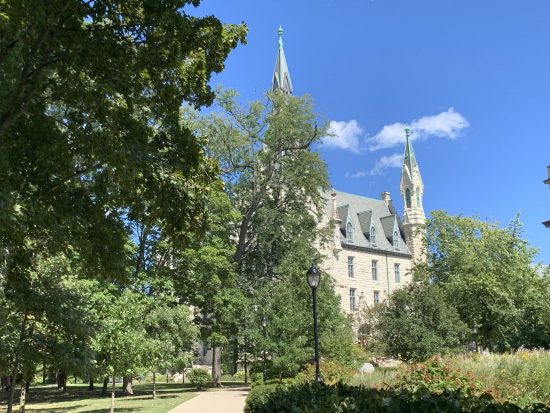High School Community Service – What You Need to Know
Last Updated on April 29, 2024 by Jill Schwitzgebel
By now, teens and their parents have all gotten the message that colleges like to see community service on students’ college applications. In fact, in some cases, not having any high school community service on their resumé can hurt students’ chances of being admitted.
So, knowing that community service in high school can make a student more attractive to admission officers, here are some things that students should know.
Why is Community Service Valued?
Community service hours should not feel like a burden for students, or like a hurdle that they have to overcome in order to graduate, receive a scholarship, or apply to college. The student’s real goal should be to find a civic engagement that they truly enjoy as an opportunity to give back to a community in some way.
Colleges appreciate seeing that their applicants engage in volunteer opportunities because it not only gives them a more complete understanding of the applicant, and it shows them that the student is likely to contribute to the campus community. To them, it means that students will be more engaged and involved outside of the classroom.
How Many Hours Should a Student Complete?
There is no “right” answer to this question. At some high schools, students are required to complete a minimum number of service hours in order to graduate. Some states require service hours to be able to receive state-sponsored scholarships.
In general, completing just a few hours over the course of their high school career will send the message to the college that the student really didn’t feel much of a commitment. And, it will tell the college very little about the applicant’s personality, goals or passions.
The number of hours most admissions officers agree is desirable, ranges from about 50 – 200 hours over the course of four years. Is this a magic number range? Nope. But, that range is generally considered what it takes to prove that students have a commitment to civic engagement. And, if volunteering is going to be a student’s major extracurricular, I strongly recommend that students spend closer to 100+ hours than to 50 hours.
Will an admissions officer discount a student who volunteered for fewer than fifty hours? Not likely. What is important is that the teen can demonstrate that they were committed to the activity and contributing. Thank quality over quantity. Officers will certainly understand if the student was committed to other activities that require a time commitment, like playing a sport, student government, etc.
If an applicant has spent 500+ hours in a meaningful community service activity, are admissions officers going to feel that is too much and reject a student for that? Also no! There is no maximum number – unless it is so many hours that it has affected a student’s ability to complete their homework and earn strong grades OR if the student is not able to demonstrate why the activity was important enough to them personally.
What Kind of Community Service Should Students Complete?
Any kind they want! But consider, if a student is going to spend 50-200 hours of time doing volunteer work, then it makes sense to dedicate their time to something they feel connected to. It should emerge naturally from their interests. And, it will be easier to put in the hours in one ongoing project than it would be to find 50-100 projects along the way.
College admissions officers are clear that they like to see sustained engagement, no matter the project. It shows them that the applicant is dedicated and likely has made an impact. And often, if a student has been committed to one type of project, they have had opportunities to demonstrate leadership along the way, which also will help their application to stand out. It goes back to engaging in work that is meaningful to the student in some way – emotionally, culturally or even ethically.
This means that driving to a soup kitchen and donating is a nice thing to do, and may count toward a student’s required high school service hours, but actually spending time serving food and interacting with the people there is much more important. Collecting toys for the humane society is nice and shows initiative but volunteering there weekly cleaning cages and food bowls and interacting with the animals shows a different level of commitment.
Keep in mind that admissions officers will be tuned in to students that are doing high school community service work just for the sake of getting in the hours to list somewhere. It will likely be clear to them if a student has done volunteer work just for the sake of “checking the box” on a college application.
Community Service and the College Essay
It makes sense that a student who has engaged in meaningful volunteer opportunities in high school would want to write about that work on their college application, either in an essay or personal statement. But, students need to be careful about how they do it. Just as discussed in my article about extracurriculars, community service essays tend to be common. It is difficult for teens to differentiate themselves in that kind of an essay, because the themes that come from it will be similar.
Instead, I recommend that students focus on a “snapshot” moment in time, relating something unique they learned from a specific experience. Sharing an anecdote or a reflection of one specific event that was especially meaningful or caused the student to experience some personal growth is more interesting and much preferred to writing generally about how volunteering made them a better person.
Finally…
Remember, that community service is not what is going to make or break a student’s college application. But, it is likely that it would be a “tiebreaker” if there are two students who have very similar backgrounds in other ways. Especially at competitive colleges, it would be unusual and conspicuous if a student did NOT have community service on their application.
Perhaps the most important thing to remember is that the best examples of service on college applications is service that was done because the student enjoyed it and experienced some kind of personal growth from the opportunity. Volunteering just because they have to for a scholarship or as a way to impress admissions officers with the number of hours they have put in could backfire.
When I talk to students who have been really committed to community service and have put in many hours, the recurring theme I hear from them is that it didn’t feel like “work,” it was actually a lot of fun!
Check out DoSomething.org to find some great ideas for student involvement!










